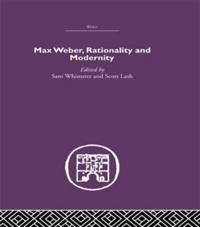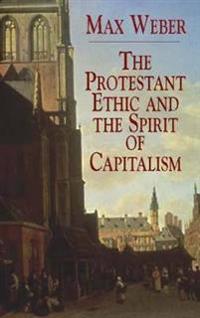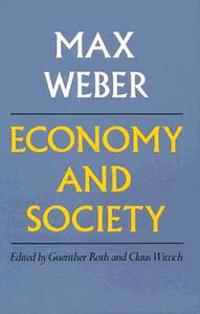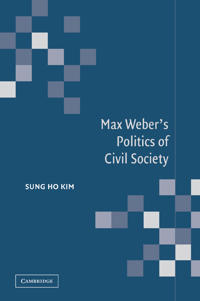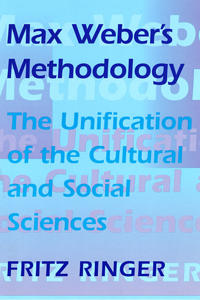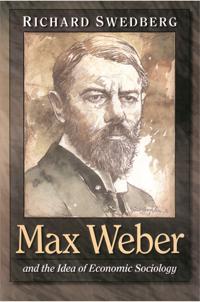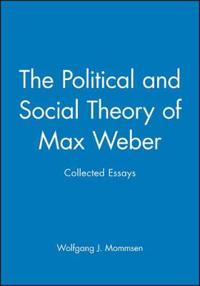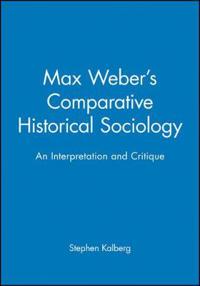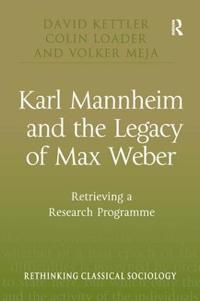Max Weber, Rationality and Modernity (Pocket)
avSam (EDT) Whimster, Scott (EDT) Lash, Sam (EDT) Whimster
ISBN: 9780415489546 - UTGIVEN: 2008-10This book brings together leading figures in history, sociology, political science, feminism and critical theory to interpret, evaluate, criticize and update Weber's legacy. In a collection of specially commissioned pieces and translated articles the Weberian scholarship recognizes Max Weber as the [...]
Max Weber (Häftad)
avFrank Parkin
ISBN: 9780415849470 - UTGIVEN: 201305This study of Weber's sociology, written by an eminent authority, is a clear and illuminating discussion of the most important elements of Weber's thinking. The book concentrates on four main elements of Weber's work: his approach to sociological method, ethical neutrality and historical explanation[...]
Max Weber and Michel Foucault (Pocket)
avArpad Szakolczai
ISBN: 9780415863148 - UTGIVEN: 2014-08Max Weber and Michael Foucault are among the most controversial and fascinating thinkers of our century. This book is the first to jointly analyse them in detail, and to make effective links between their lives and work; it coincides with a substantial resurgence of interest in their writings. The [...]
Max Weber: Readings And Commentary On Modernity (Övrig)
avEditor:Stephen Kalberg
ISBN: 9780470773369 - UTGIVEN: 2008-02-29The Protestant Ethic and the Spirit of Capitalism (Pocket)
avMax Weber, Talcott Parsons, Talcott Parsons
ISBN: 9780486427034 - UTGIVEN: 200304..." a brilliant study of the psychological conditions which made possible the development of capitalist civilization."--"The New Republic
This brilliant study--the author's best-known and most controversial work--opposes the Marxist concept of dialectical materialism and its view that change tak[...]Max Weber: An Intellectual Portrait (Övrig)
avReinhard Bendix
ISBN: 9780520031944 - UTGIVEN: 1978-01-18Economy and Society (Häftad)
avMax Weber
ISBN: 9780520035003 - UTGIVEN: 197812Max Weber's "Economy and Society" is the greatest sociological treatise written in this century. Published posthumously in Germany in the early 1920's, it has become a constitutive part of the modern sociological imagination. "Economy and Society" was the first strictly empirical comparison of socia[...]
Politics, Death and the Devil: Self and Power in Max Weber and Thomas Mann (Övrig)
avHarvey Goldman
ISBN: 9780520077508 - UTGIVEN: 1992-10-26This sequel to Harvey Goldman's well-received Max Weber and Thomas Mann continues his rich exploration of the political and cultural critiques embodied in the more mature writings of these two authors. Combining social and political thought, intellectual history, and literary interpretation, Goldman[...]
Max Weber's Politics of Civil Society
ISBN: 9780521036566 - UTGIVEN: 2007-05This book is an in-depth interpretation of Max Weber as a political theorist of civil society. On the one hand, it reads Weber's ideas from the perspective of modern political thought, rather than the modern social sciences; on the other, it offers a liberal assessment of this complex political thin[...]
Democracy and the Politics of the Extraordinary: Max Weber, Carl Schmitt, and Hannah Arendt (häftad)
ISBN: 9780521133418 - UTGIVEN: 2009-06Although the modern age is often described as the age of democratic revolutions, the subject of popular foundings has not captured the imagination of contemporary political thought. Most of the time, democratic theory and political science treat as the object of their inquiry normal politics, instit[...]
Max Weber: Readings And Commentary On Modernity (Inbunden)
avEditor:Stephen Kalberg
ISBN: 9780631214892 - UTGIVEN: 2005-02-28Max Weber: Readings And Commentary On Modernity (Häftad)
avEditor:Stephen Kalberg
ISBN: 9780631214908 - UTGIVEN: 2005-01-31Protestant ethic and the spirit of capitalism (Pocket)
avMax Weber
ISBN: 9780631230816 - UTGIVEN: 2001-12-28This text studies the psychological conditions which made possible the development of capitalist civilization. It analyzes the connection between the spread of Calvinism and a new attitude towards the pursuit of wealth in post-Reformation Europe and England.[...]
Max Weber's Methodology (Häftad)
avFritz K. Ringer
ISBN: 9780674001831 - UTGIVEN: 2000-03At a time when historical and cultural analyses are being subjected to all manner of ideological and disciplinary examinations, the work of social theorist, Max Weber, is especially relevant. In this study, Fritz Ringer offers a new approach to the work of Weber, interpreting his methodological writ[...]
Max Weber and the Idea of Economic Sociology (Häftad)
avRichard Swedberg
ISBN: 9780691070131 - UTGIVEN: 200007While most people are familiar with 'The Protestant Ethic and the Spirit of Capitalism', few know that during the last decade of his life Max Weber (1864-1920) also tried to develop a new way of analyzing economic phenomena, which he termed 'economic sociology'. Indeed, this effort occupies the cent[...]
Max Weber in America (Inbunden)
avLawrence A. Scaff
ISBN: 9780691147796 - UTGIVEN: 201101Max Weber, widely considered a founder of sociology and the modern social sciences, visited the United States in 1904 with his wife Marianne. The trip was a turning point in Weber's life and it played a pivotal role in shaping his ideas, yet until now virtually our only source of information about t[...]
Max Weber (Häftad)
avKieran Allen
ISBN: 9780745322384 - UTGIVEN: 2004-06Max Weber is one of the founding fathers of sociology. He is often referred to as a sophisticated 'value-free' sociologist. This new critical introduction argues that Weber's sociology cannot be divorced from his political standpoint. Weber saw himself as a 'class conscious bourgeois' and his sociol[...]
The Political and Social Theory of Max Weber
ISBN: 9780745611327 - UTGIVEN: 1993-01Wolfgang J. Mommsen is one of the foremost Weberian scholars writing today. In this volume, a sequel to his monumental study Max Weber and German Politics , he provides succinct and incisive statements on current developments in the analysis of Webera s work. The book concentrates upon Webera s enga[...]
Max Weber's Comparative Historical Sociology (Pocket)
avKalberg
ISBN: 9780745612379 - UTGIVEN: 1993-10In this accessible and engaging work, Kalberg shows how Webera s work casts a direct light upon issues of pressing importance for comparative--historical research today addressing in a forceful way the whole range of problems and dilemmas confronted by the comparative--historical enterprise.[...]
Max Weber's Methodologies
ISBN: 9780745618135 - UTGIVEN: 2002-09Max Weber is widely regarded as the most important and influential figure in the history of the social sciences. Among other things, he wrote extensively on the methodology of the social sciences, but his writings on methodology are complex and are the subject of many conflicting interpretations. In[...]
Max Weber: A Biography (Häftad)
avJoachim Radkau
ISBN: 9780745641485 - UTGIVEN: 201104Max Weber (1864-1920) is recognized throughout the world as the most important classic thinker in the social sciences - there is simply no one in the history of the social sciences who has been more influential. The affinity between capitalism and protestantism, the religious origins of the Western [...]
Politics and Sociology in the Thought of Max Weber (Häftad)
avAnthony Giddens
ISBN: 9780745670966 - UTGIVEN: 2013-04-30This book provides an interpretation of one of the key aspects of Max Weber's work: the relationship between his political and sociological writings.[...]
Karl Mannheim and the Legacy of Max Weber (Inbunden)
ISBN: 9780754672241 - UTGIVEN: 2008-10This book focuses on the important work of Karl Mannheim by demonstrating how his theoretical conception of a reflexive sociology took shape as a collaborative empirical research program. The authors show how contemporary work along these lines, whether derived from Foucault, Bourdieu or other theor[...]

